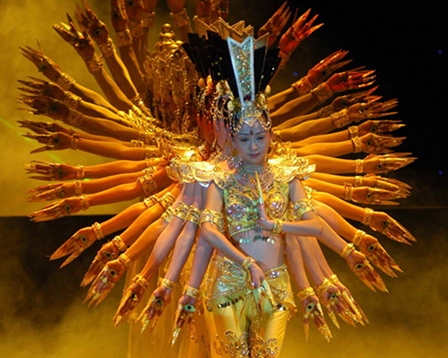The following article originally appeared in Newtopia Newtopia Magazine.
Born in Texas, Brian has fond memories of growing up
Methodist. At about the age of
eleven he joined his family and his church heeding Martin Luther King Jr's call
for civil rights marches. But he
also remembers other pastors warning that King was a commie, and that commies
could march right on to your street, knock on your door, and cut your head off! A few years later Brian had the
experience of being swept up in the joyous celebration of being saved in
evangelical churches. After that he lived first in India, then in Kenya, before
settling down in Toronto as an independent historian.
Brian first authored The
Gardens of Their Dreams: Desertification and Culture in World History
(2001), which shows that for most of history, water has been the measure of
civilization, and the mess we're making of our ecology now is an old human
tradition. It's no accident that the cradles of our cultures are now deserts. The myth of paradise lost is not a
myth. As resources become scarce,
coercion becomes more important than production, sound familiar?
Women, who were important when they watched after the
garden, the herd and the children, lose status in a society of scarcity. Western religion was born in the
desert, and western economics was born from our religion. No wonder we still
hear monotheists declaring that we should use nature up, instead of preserving
it for future generations. In a world of polluted rivers and the Great Pacific Garbage
Patch this is one of those books everybody should have to read. To give us hope, the book also provides
examples of human beings coming to their senses and preserving instead of
destroying.
Brian also wrote Different
Visions of Love: Partnership and Dominator Values in Christian History
(2008), a real eye opener about the schizophrenia of Christianity, or how a religion of peace and poverty winds up supporting wars, wealth and power. He
looks at everything from Hell to the Lord's Prayer through these two prisms
that provide very different views of the world.
Different
Visions pairs nicely with the book he released the following year Correcting Jesus: 2000 Years of Changing the
Story (2009), which details exactly how Jesus got the worst make over in
history as everyone from the apostles to the Roman Emperors corrected or
explained away what Jesus really said to suit their own ends. The Jesus who wanted people to think
for themselves, who was non-violent, and treated women like human beings, has
been twisted into all sorts of rude caricatures, many of which have had more
influence on human history than the real thing.
My favorite of his books, though, is his latest A Galaxy of Immortal Women: The Yin Side of
Chinese Civilization. From
female war lords who were also high priestesses to the poignant outhouse
goddesses, two girls murdered and thrown into outhouses, who became goddesses
who provide the inspirations that so famously happen when you're indisposed,
The book is a treasury of inspiration.
What inspired you to write about China's immortal women?
That goddesses book comes from having a mix-up in the head
between places I've lived. I grew up in Texas with all the culture wars over
religion and the American way. Then India, where there are a lot of goddess
religions. Then Kenya, where the men are the bosses but the women are the real
leaders. And finally Toronto, where everything gets mixed together.
What was it like moving
from Texas to India and then Kenya?
What impacted you most about each of those places?
In India, the thing that
got me most was the falling water table. All over the Deccan plateau our wells
were falling at maybe a foot per year, and there were already periods at the
end of the dry season when various wells went completely dry. The higher caste
people didn't want us to use their wells. Anyway, maybe there's nothing so
strangely terrifying as the prospect that even the groundwater will disappear.
I thought these huge Asian countries were facing problems of the past, but I
realized they are facing the problems of the future. In Kenya, the villages were mostly female. The guys were
mostly off in the cities trying to make cash, leaving the women behind to
manage the farms and kids at the same time. And these people were marvelous.
They were sculpting the hills into terraces to stop soil erosion, and doing
group tree nurseries, covering their hills in young trees. I realized that
these women were the main force holding back the desert, and their values may
well save the world.
Having mostly heard about the prejudice against female
children in China, I was amazed to find such a rich spiritual heritage of
goddess worship in Chinese history.
In China, there are hosts of goddess traditions. The most
popular deity in the land is a woman (Guanyin, or Kwan Yin), and others like
Mazu have around 100 million devotees in the world. These cults are
international, all over East and Southeast Asia, and spread everywhere by
migrant communities or popular appeal. If we added the many goddess traditions
all together, they would count as one of the biggest religions in the world.
These traditions go back to dawn of history and have been popular in every age.
In China, the age of the goddess never died. I figured we could learn more about
what these women and their religions have to say, about life, death, health,
sexuality, partnership, spirituality, and the ultimate happiness.
Festival of the folk goddess Mazu in modern China
Why do so few people know about the women's spirituality of
China?
Of course it's obvious that the values and religions of
Chinese women have not ruled the country. The dominant values and religions had
been set by warlord rulers, so that the guiding principle of Chinese
civilization seemed to be blind obedience to superiors. The warlord rulers
claimed to be the central objects of their people's loyalty, the hired
Confucian officials claimed to be the official spokesmen for their
civilization, and the eldest males of each household claimed to be the central
figures of the family. But who believed these claims? The women commonly took
themselves as the central characters in their lives. They went ahead and built
their own social worlds and their own versions of religion. Their religions
didn't really have state backing, and the female leaders didn't have power over
other people. They were just popular. They were not "organized religions," just
"folk religions." They were countercultures, and maybe the greatest
counterculture on earth. It's very likely that the popular women's
countercultures been closer to most people's hearts than the official doctrines
of the rulers.
Tell us a tale you find particularly poignant.
One of my favorite stories about women's values is about the
Queen Mother of the West, Xi Wang Mu. This goddess was the chief of the
shaman-women, and perhaps the most popular deity in China down to medieval
times. And according to tradition, she paid a visit to the great emperor Wu
around the year 110 BCE. This emperor had launched victorious wars against the
barbarians, and built the might of China to rival that of Rome. He had adopted
an official version of Confucianism as the state religion, in which the main
moral obligation was for subjects to serve their superiors. In his political
and spiritual roles, Emperor Wu would be roughly equivalent to the combined
figures of Roman emperors Augustus and Constantine. To top it off, Emperor Wu
claimed that the most popular goddess in the land had come to pay homage to him
at his court. It was a piece of egotistical propaganda, and it was as if
Emperor Charlemagne had claimed that the Virgin Mary came down from heaven to
bless his rule. According to court propaganda, the Queen Mother came to offer
Emperor Wu her praise, and maybe even give him her love. But according to the
popular version of the story, the Queen Mother came to the emperor and said:
"You were born licentious, extravagant, and violent; and you live in the midst
of blood and force no matter how many Daoists you invite here in hopes of
immortality, you will only wear yourself out." Maybe that suggests something
about the role of women's religions in Chinese history.
What lessons can we learn from Chinese women's spirituality?
I think the many female
spiritual teachers in China developed a host of insights about living with
authenticity, partnership, balance, harmony with nature, healthy diet, natural
healing, sexuality, or inner peace. Daoist lineage founders like Wei Huacun or
Cao Wenyi, or Buddhist saints like Miaoshan, or the great Tibetan teacher Yeshe
Tsogyal had a tremendous influence on Chinese religion. Their spiritual
practices such as Tai Chi or inner alchemy might become the new yoga in terms
of popularity around the world. These teachers even developed spiritual
practices specifically for women, and even more specifically for virginal women,
those of child-bearing age, and post-menopausal women. It was not one approach
fits all. Anyway, there's a lot
more that the counterculture of Chinese women has to offer, and I think anybody
interested in a more balanced way of life should check it out.
Tell us how Raine Eisler influenced your work.
I'm a bookworm for history books, and a few writers inspired
me a lot. Riane Eisler's The Chalice
& the Blade let me see a pattern in all the culture wars I'd been
seeing. She showed how history is a running competition between visions and
values, where the dream is either real partnership between people, or else a
dominator system of proper order through a chain of command. Eisler showed how
that competition played out in Western history or religion, and I saw how it
applied in India and Africa as well. I got the idea of writing about the
competition of partnership and dominator values in other civilizations.
Tell us about the Chinese Partnership Research Group.
In 1996, Eisler told me about a new book from China called The Chalice & the Blade in Chinese
Culture, that was written by a team of Chinese scholars called "the Chinese
Partnership Research Group." They basically told the story of relations between
men and women in every age of China's history, exposing tremendous detail on
how the clash of cultures had worked out in China. It was great, but the book
was very hard to get in the West, and it was written in a way where most
Western readers would mostly get lost. The authors made too many assumptions
that the readers already knew something of the events or people they were
talking about. I decided to build
on this, and make a Westerner-friendly story of China's culture wars, that
would highlight the values and achievements of Chinese women. Especially their
religions, which were made by and for women. Because growing up in the West, I
always felt that religion was a mainly male thing. All the gods, rabbis,
priests and mullahs I knew were male. I heard there used to be women's
religions in the ancient past, but those were blown away as superstitious
nonsense a long time ago, by whatever means necessary. So I wondered, how would
women make religion if left to their own devices? And I realized the answer was
staring us all in the face. The great women's religions of India or China, or
elsewhere, were standing there, popular as ever, in the modern world.
The Gardens of Their Dreams: Desertification and Culture in World
History is one of those books everybody should have to read. You were born in Corpus Christi, an
area hit by the Deepwater Horizon disaster. Does your study of history give you any hope that we can
avoid the worst case scenario future some of our monotheist neighbors seem to
think a desirable outcome for humanity?
Probably most people in the
history of the world have hoped to make the land they live on richer over time.
They have hoped to make the land greener and more fertile as they work it, and
in many cases they have succeeded. In traditional China the village women acted
like matchmakers between plants and animals, so that the fish, the rice, beans,
algae, willow trees and water buffaloes all helped each other to grow. They
achieved something we can call "permaculture," where that land's
fertility was sustained over thousands of harvests. I think we need to learn
from that, and get back to it. Basically, local communities can save and heal
the landscape they live in, but it takes a long-range, community spirit. If we
leave everything to market forces, then the market interest is always to
maximize what we take over what we put back into the land in every season, till
we hit the dust bowl. Saving the country will take communities, and it will
take communities saying no to corporate priorities. I think people like Vandana
Shiva and her village women in India are among the greatest leaders in the
world on that.
Your book Different Visions of Love: Partnership and
Dominator Values in Christian History neatly labels Christianity's
historically split personality as "partnership" and "dominator." The Christians who joined together to
march for civil rights practised partnership Christianity. Their neighbors who wore hoods with the
KKK after church on Sunday were dominator Christians. Do you think partnership is the future of Christianity, or will
Christians always have a dominator shadow?
Of course I got the terms
"partnership" and "domination" from Riane Eisler. And
Eisler showed how there was a competition between partnership and dominator
visions all through the stories of the Bible, and all through our history ever
since. The histories of Islam and Christianity have run pretty much parallel in
that way. And from meeting some
great Christian, Jewish, and Muslim women in North America, I realized that
women commonly have their own versions of their seemingly male-controlled
religions. They tend to ask their own questions and give their own answers.
Rather that asking "What does the ultimate authority require?" they
tend to ask "How good can our relations with others get?" In other
words, women have tended to ask partnership questions rather than dominator
questions. Of course lots of men want partnership answers to life as well,
since experience shows how much better that can be. So I think women's influence and partnership values are on
the rise in all religions, and we're going to see more options for balance and
wholeness. Maybe even Christianity and Islam can achieve a balance of yin and
yang. But as always, some people freely want domination. They flock to
authoritarian leaders of the Muslim or Christian worlds, who will tell them
just what to do. Because they don't want to risk making mistakes, and they want
infallible guidance from a superhuman authority. People will always be able to
choose what they want most in life. Some will want a strong authority to obey,
and others dream of better relations between free and equal people.
In your book Correcting Jesus: 2000 Years of Changing the
Story you have a chapter called "Correcting Respect for
Women." What can you tell us
about why Christian politicians in American in 2012 would be pursuing an agenda
that has been called "the war on women?"
Well, if your main
religious question in life is "Who's the boss?" then issues of who
ranks higher than who will seem to be crucial values questions. And when people
argue for their own people being on top, they know to make it seem like a
question of what's good for everybody. In terms of racial segregation they said
it was better for black people themselves if they were separate. In terms of
superpower status, they'll say that either the good guys stay on top, or else
it will be the bad guys. And they'll say it's best for women themselves if they
stick to traditional female roles, with the traditional powers that go with
that. There's still a sense in Christian history that compassion is for women,
and it's not a manly thing. For example, James Dobson, a founder of "Focus on
the Family," wrote an article called "Gender Gap?" which listed "the countless
physiological and emotional differences between the sexes." Perhaps most
importantly, Dobson explained that for women, love is a primary need and a
"life-blood," while men have less need for love. And it seemed clear to Dobson
that this made men more fit to serve as Christian leaders. Compassion seemed an
effeminate virtue, which rendered women unfit for leadership. And of course
this is close to the strangest twist you could possibly put on what Jesus
taught.











